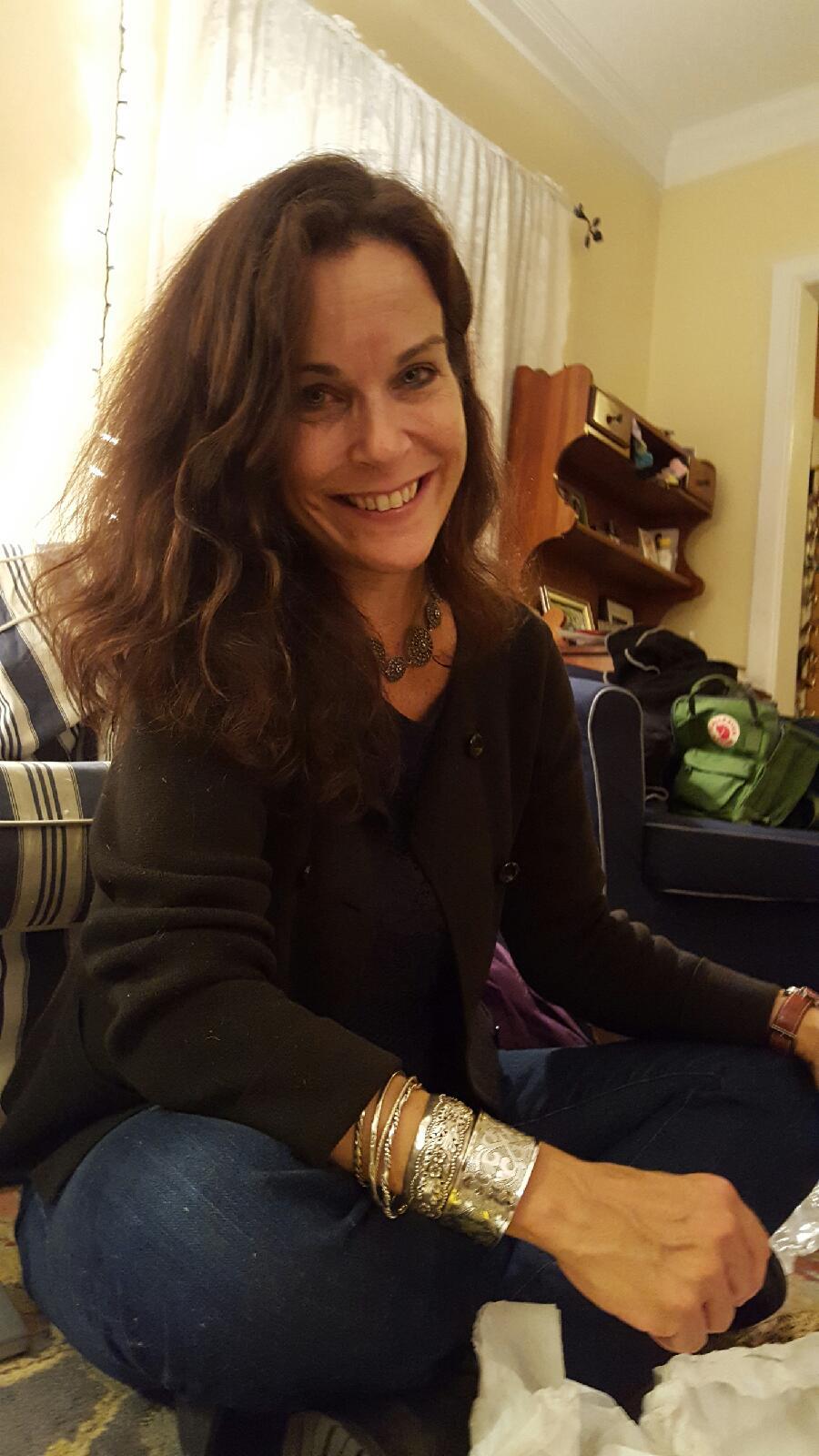For three weeks after my mother dies, my sister and I return to New Orleans and I live outside of time and space, no job, no husband, no daughters, sleeping on the couch where she died, wearing her nightgown which I have washed and washed and it still smells like smoke. Each night my father spells out two blue sleeping pills into my palm.
unmothered motherless no mother mother free not a mother no mother mother mother mother
Each morning, for three weeks in New Orleans I walk Jefferson Highway:
Prestige Flooring, Ochsner Hospital, Dat Bar, Zaddie’s Tavern, kudzu-covered vacant lot where the Sports Palace was, the Section 8 housing, dumpster behind the dry cleaners.
There is beauty elsewhere in this city, but I choose to ignore it.
Forget the magnolia and hibiscus.
I walk past the hospital where she did not go to die.
One of the biggest surprises: grief resides so deep in the body: shaky and dizzy and can’t balance and shivering and I am in New Orleans and it is not cold.
Now I hate Spring, the greening of the trees, the budding; the daffodils forcing themselves out of the dirt in the yard make me furious.
Once her body was my home.
Another surprise: at times the three of us were actually hungry. Spooned up all the red beans and rice friends brought. Drank the carafe of wine. Ate too much cake.
Mornings in New Orleans are the worst: I am awake and blasted by imaginary hymns which screech through my head, then dizzy.
What was she wearing when they burned her body?
I remember how she faked her death when I was a child: in our family play.
A version of Hansel and Gretel.
Only once did she appear, as the bad stepmother, a kitchen knife slipped between
her arm and her shoulder and she fell down on the floor.
Spring: season of renewal, season that doesn’t exist in New Orleans, no cool wind rinsing the air none of the bulbs we never planned that always come back rising from the earth in front of the house
Texted to myself while I walk the highway: you must remember her reading aloud.
She always did the voices. She was a much better reader than my father, which still surprises. I hear her voice in my head so easily whenever I read now. I wish I had read to my daughters in that way—I don’t think I took the pleasure in it that she did. I wanted to read my own book and sit beside them.
Now I can’t read. So that oddly comforts.
I put on her winter hat—worn rarely only when she visited us on the east coast—and I cry and fold my father’s laundry. I slide shirt sleeves into shirt sleeves and tuck in collars as if this will solve anything at all.
At night I stretch out on the couch shaking under sheets as if under the surface of water, under the Gulf, the water she said she sat by to question god, to mourn the loss of our sister, her stillborn third child, the loss that almost took her faith, she said.
The priest insists on an afterworld. I want to believe it.
I touched her. I was the last to touch her. Not her body but the box of her ashes. In the Columbarium. I touched the white cloth—shroud?—covering the wooden box that was her. I rested my hand on the cloth, on the top of the box, told her I loved her—
At the funeral the man who had followed me around the city when I was a teenager taking pictures of my body approached me stuck his finger in his eye and dragged it down my face. “I cried for your mother. I want you to know,” he said.
I should have been shocked but I wasn’t.
Before I turn onto the highway, I snap the head off the daffodil in the front yard. I want to ruin something.
Why hives the night before her funeral itching and all the time now, I feel heat rising in the skin of my face and stare at my face for differences—aren’t I a completely different person now and why can no one see it? Something is burning beneath my surface.
I am walking the highway. I am wearing the skirt. I am smoking her cigarette.
One afternoon, my sister and I throw out all the cigarettes in black contractors’ bags behind the house. But her lighters—research on my phone reveals a single lighter can ignite a landfill and my sister and I agree we have to take action—my sister and I carry them all to Zaddie’s Tavern on the corner of the highway in a plastic bin where my mother kept her pens.
The bar is hot and thick with smoke, empty except for a man playing video poker. “Could you use any of these?” I ask the woman behind the bar. “Oh yes, and thanks,” she says, with a broad smile, looking happier than the nurse at the hospital where my sister and I donated my mothers’ eyeglasses to the day before. “Oh, yes, we can.

